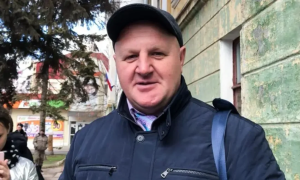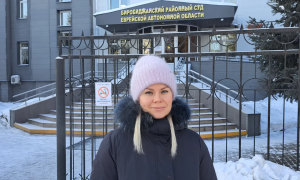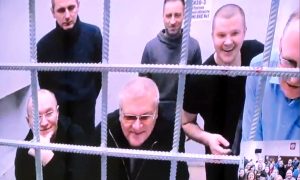Myth: The Supreme Court of the RF banned the Jehovah’s Witnesses.
Fact: The Jehovah’s Witnesses are citizens of Russia, whom it is impossible to ban according to current legislation. The Supreme Court banned (more precisely, liquidated) not citizens but 396 legal entities [juridical persons] that these citizens use. The court’s ruling states: “To liquidate the centralized religious organization of Jehovah’s Witnesses in Russia and also all 395 local religious organizations.”
Myth: Jehovah’s Witnesses were banned because they break up families, steal apartments, mess with people’s minds, do not celebrate holidays, do not serve in the army, do not participate in elections, do not accept blood transfusions, and are financed from the U.S.A.
Fact: The only basis of the decision of the Supreme Court is distribution of extremist literature. The only reason for ruling this literature to be extremist is “propaganda of the exceptional nature of their religion.”
Myth: The Supreme Court banned the religion of the Jehovah’s Witnesses.
Fact: Nothing is said in the court’s ruling about the doctrines, views, or convictions of Jehovah’s Witnesses or other citizens. Even the plaintiff (the Russian Ministry of Justice) did not demand any sanctions based on religious confession identity. Such sanctions would violate the constitution of the RF, which forbids religious discrimination (article 19).
 Â
Â
Myth: The activity of Jehovah’s Witnesses is forbidden in Russia.
Fact: The court did not subject the Jehovah’s Witnesses’ religious activity to evaluation, much less to prohibition. This activity is guaranteed by article 28 of the constitution of RF, and banning it is outside of the competence of the Supreme Court.
Myth: The Supreme Court declared Jehovah’s Witnesses to be extremists.
Fact: In Russia the faith of the Jehovah’s Witnesses, by various counts, is professed by from 160 to 400 thousand persons. No single court has the competence to declare all of them extremists at once. For this, individual judicial proceedings are necessary for each particular citizen.
Myth: It is impossible to be a Jehovah’s Witness in Russia any more.
Fact: The Supreme Court did not establish which religions citizens of Russia may profess and which they cannot. The court also did not rescind the action of the constitution of the RF, whose 28th article guarantees to all citizens, including Jehovah’s Witnesses, the right to have, profess, and spread any religion.
Myth: Now the Jehovah’s Witnesses will be in an illegal position.
Fact: According to Russian legislation, a religious association may be registered (in which case it is called a religious organization) and unregistered (in which case it is called a religious group). The court liquidated the registered organization of Jehovah’s Witnesses, but they have the right to act without registration, which they even did earlier; now they simply will do so more often. This is within full compliance with the law.
Myth: In speaking about Jehovah’s Witnesses, news media are required to mention that they are banned in Russia.
Fact: Jehovah’s Witnesses are not an organization, but are citizens. Citizens have not been banned but the organization under the name “Administrative Center of Jehovah’s Witnesses in Russia” has been. Consequently, it is necessary to speak about the ban only when mentioning this organization, and not Jehovah’s Witnesses in general. (tr. by PDS, posted 9 May 2017)
Russia Religion News Current News Items
http://www2.stetson.edu/~psteeves/relnews/170509a.htmlÂ





